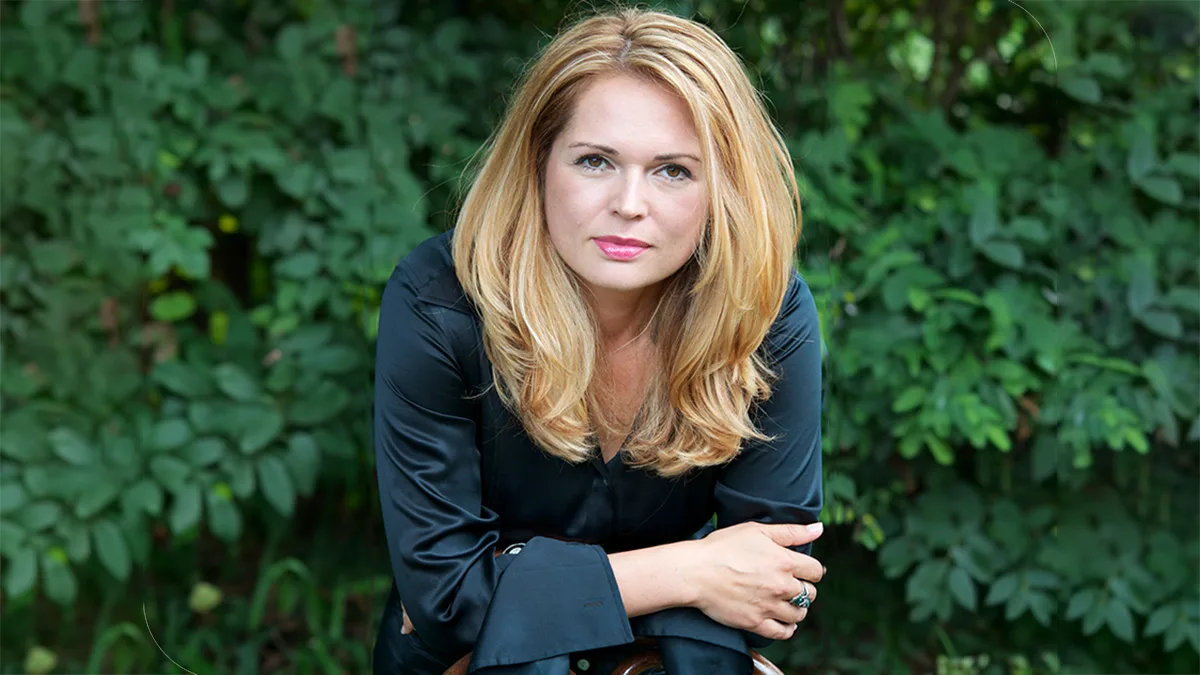
Overview
Stella Vnook, PhD, is a serial entrepreneur who brings deep scientific and business expertise to cancer drug development
Vnook's path from Chernobyl to biotech entrepreneur spans multiple ventures and disciplines
The 1986 Chernobyl nuclear disaster's impact on women's health continues to drive medical innovation nearly four decades later. For Stella Vnook, PhD, co-founder of Kaida BioPharma, the connection is deeply personal – she lived near the region during the explosion and later lost her mother to ovarian cancer linked to radiation exposure.
"Young girls exposed to this amount of radiation were primarily suffering from a variety of thyroid, endocrinology and related issues," Vnook said in an exclusive interview with Cure. "Later analysis of my mother's tumor sample showed mutations caused by radiation exposure."
Vnook's path from surviving Chernobyl's aftermath to becoming a biotech entrepreneur spans multiple ventures and disciplines. With more than two decades working in the pharmaceutical industry, beginning at Merck & Co., she has founded several companies, including MaiCell Therapeutics and NAKI Therapeutics. Currently CEO of Likarda, a biotech company advancing cell therapy solutions, Vnook brings deep expertise in both the scientific and business aspects of drug development.
Vnook is also actively developing new treatments for ovarian cancers through a company she co-founded, Kaida BioPharma. The company has identified a hormone – prolactin – that is overexpressed in approximately 80 percent of women with ovarian cancers. Their investigational therapy blocks the prolactin receptor, aiming to halt tumor cell growth and reduce metastases.
Initially targeting patients who have become resistant to platinum-based chemotherapy, the treatment could potentially be used alongside or instead of traditional chemotherapy. This approach is particularly important given the limited options for women whose cancer has stopped responding to standard treatments. Kaida's drug, KAD101, is currently in preclinical testing and will advance into Phase 1 clinical trials in 2025.
"I'm very passionate about this because this will solve a huge issue for women," she said. "The opportunity to make such an impactful difference for so many is really heartwarming for me."
Despite advancements in oncology, women with ovarian cancer typically go undiagnosed until it reaches an advanced stage after it has already metastasized. Even when detected, ovarian cancers have few treatment options outside of surgery, radiation and chemotherapy, with some women opting for complete removal of their ovaries as a precaution. More than an estimated 19,000 new ovarian cancer diagnoses will occur in the U.S. in 2024, and the disease will kill more than 12,700 women, according to the American Cancer Society.
"Think of the devastation for someone like me, and there are plenty of other women who have mothers, sisters, grandmothers with ovarian cancer, to think that after 40, you should really consider removing ovaries," Vnook said.
While research disparities persist – the most recent data available from the National Cancer Institute's 2022 fiscal year funding for ovarian cancer tallied $140 million, half of its $280 million allocation for prostate cancer – attitudes are shifting. The American Cancer Society notes that ovarian cancer deaths have decreased by 40 percent since 1975, with most of the progress occurring in the last decade.
More broadly, Vnook sees momentum building for innovation in women's health. At a recent university pitch day, she noted that 75 percent of the researchers presenting were women looking to start companies based on their work.
"I urge a lot of the founders and people in this space to look at the areas and challenge the status quo," Vnook said. "I think that's my biggest call to action. We have enough brilliant people and advances in science to now address some of those needs when it comes to women's health."
She also said she's open to working with entrepreneurs and researchers to advance their ideas and companies.
"I'm very passionate about helping companies, whether it means investing in those companies or working with them, partnering with them, co-founding them, being on the board," she said. "This is my purpose – to contribute to the evolution of healthcare."








